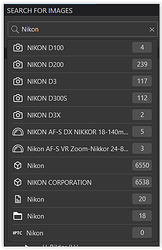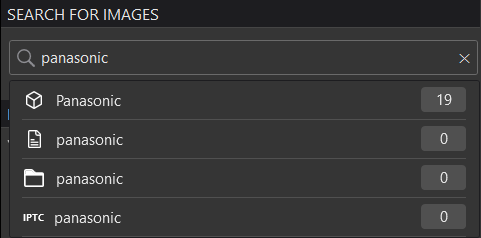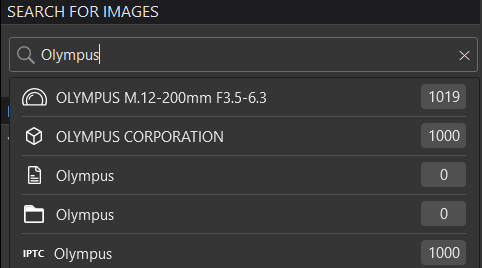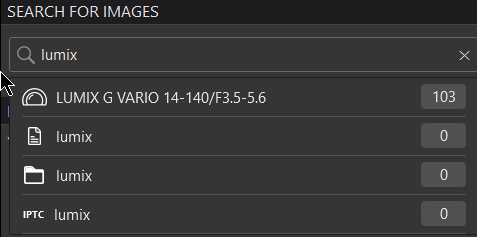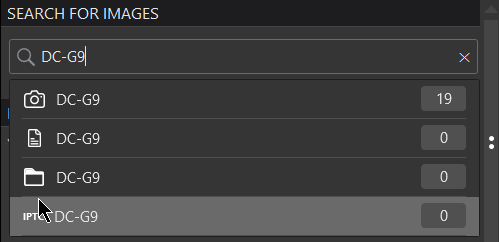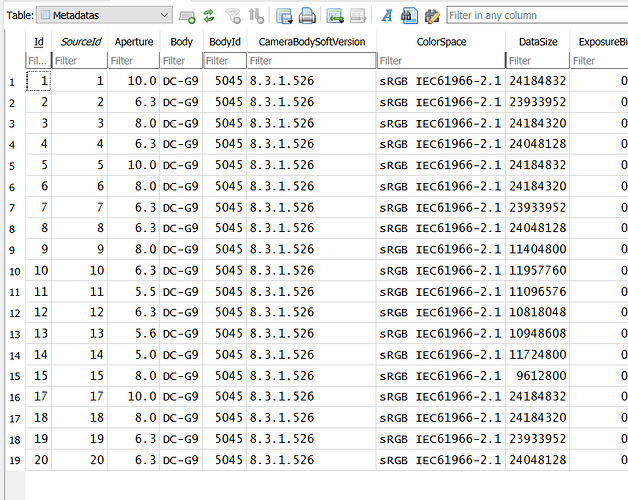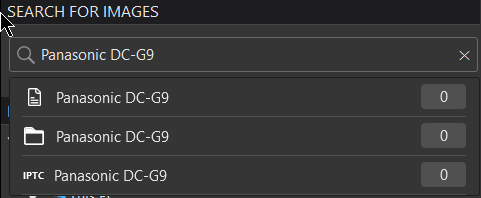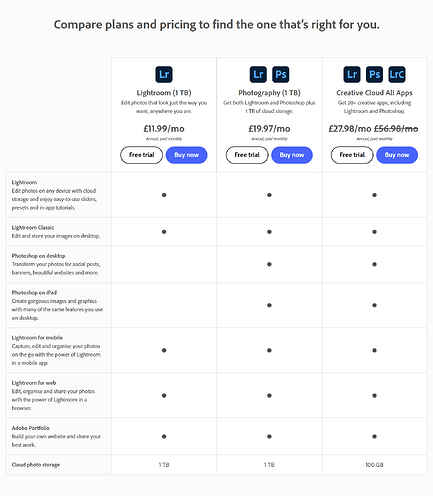An interesting article, detailing how the writer (Rod Lawton, of “Life After Photoshop”) preferred to edit a specific example image in PL - rather than LR … and why.
Sure for 4/3 usrs ![]()
He also dared to tackle another subject, “Using PhotoLab for cataloguing”
Pascal
Has he forgot how week the search tools are? … and that DXO R&D seems to have forgotten that they developed an embryo to a DAM once upon a time.
@John-M Thank you for bringing the article to our attention.
In my case I have never used Lightroom in anger (I dislike subscriptions, albeit buying an upgrade each year amounts to the same thing but at least stopping doesn’t mean losing everything) nor Capture One, way too expensive for the initial purchase (please remember that my first purchase was OpticsPro 11, sometime ago, and then upgrading every year, except when my Beta Test efforts earned me a free licence.)
Perhaps that’s why I feel happy about what I can achieve with my images, taken mostly with Panasonic Lumix camera(s), with an Olympus. longish zoom 12-200 (24-400) lens “permanently” attached.
A quote from the article “PhotoLab vs Lightroom Classic for organizing - Life after PhotoShop”
Searching/filtering: Lightroom Classic has the best tools if you really want to drill down into the details, but PhotoLab 6 has a quick and dirty search bar which can get you there just as effectively. The only issue is that there’s some vagueness over where PhotoLab is searching and which folders it has indexed in its internal database.
Which doesn’t overstate the case for DxPL but the author isn’t too sure about what is being searched. As far as I can tell it is the database and only the database.
But there can be confusion over what has been “discovered” and/or indexed by the user, i.e. what the particular database in use at any one time actually contains.
Yes @John-M I realise that in your case it will contain nothing at the start of each editing session.
Although I bought OpticsPro because its auto-import function avoided the “clumsy” importation process I have learned to “hate” it because just browsing starts adding images to the database whether I want them there or not!
While testing the other day I wanted to locate images (effectively to derive a count before and after) and discovered that DxPL cannot search on the camera model at all.
You can search by lens but not by camera because although the ‘Maker’ is held in the ‘Metadata’ Table, along with the lens and Serial number
the actual model is nowhere to be found!
A rather obvious field to include in the database one would have thought!?
@Wolfgang It certainly does
and arguably it could/should be Lumix (but see below where Lumix rears its head)!
After Loading 1,000 “BULK” images which I know are from my EM1 MKii I get
i.e. details of the lens and details of the camera maker but not the model!!
For Lumix I get (after loading an old directory)
However, it is arguably me who was sleeping
it is in the ‘Body’ field which I overlooked after my search failed
but Panasonic G9 or Panasonic DC-G9 produce nothing
Regards Bryan
@John-M Sorry I took your topic “off topic”, my apologies.
In my case I have never used Lightroom in anger (I dislike subscriptions, albeit buying an upgrade each year amounts to the same thing but at least stopping doesn’t mean losing everything)
Please stop repeating this nonsense about what happens after canceling an Adobe subscription. I see it all too often on this forum. It is very misleading.
If by “losing everything” you are implying that ex-subscribers lose their previous edits, all their organizational data like keywords, even the photo files themselves, you are misleading others. Ex-subscribers do not lose any of that, and can still access all of it even in Lightroom Classic after canceling, or in other apps.
Canceling the Abode subscription ends access to LrC’s Develop module–which just means ex-subscribers cannot revise previous edits or make new edits in LrC– it also ends access to LrC’s Map module (displaying on a map where photos were taken, if either the camera or the editor has recorded that); any location data in their image file metadata is retained. They lose access to updates to LrC.
Ex-subscribers can still view images with previous edits in Lightroom, export images with their LrC edits in any file format and open them again for further editing in any other photo app, print their LrC-edited images in LrC or elsewhere, or manage their files and metadata in either LrC, in the free-to-everyone file manager Adobe Bridge, or elsewhere. None of that requires a current Adobe subscription. Mainly it is continued access to the Develop sliders and access to other Adobe apps such as cloud-based Lightroom or Photoshop (which are apps that apply image adjustments, not organizational apps) that requires subscription. It is a fair arrangement.
What happens when you cancel an Adobe subscription?
I will remind you that perpetual licenses aren’t worth spit if the company offering them goes under, if continued use of the app requires checking in with company servers every month or so. Of course the same can be said for services provided by subscription app companies. Lifetime means something very different to app companies than to users, and there are no guarantees going forward.
DxO does some things better than Adobe and vice versa. Their subscription usually includes Photoshop, and the feature sets of PS and Lightroom are far larger than DxO’s with numerous tools added in the past three years that are quite helpful. I use DxO and Adobe together most every day and continue to support them both.
@dxodm Always nice to have something you wrote about being quoted back at you New Licensing in Preparation with PhotoLab 7.7? - #19 by BHAYT but it does serve to remind users reading this topic of the potential issues and perils of using any software.
It is unlikely that Adobe will either go under or be bought by another company so all you have to contend with is the possibility that Adobe might take the product in a direction that users do not like or drop a product from its portfolio unexpectedly. I originally wrote that was unlikely but while researching the price plans it is evident that Adobe do change things somewhat.
I stand corrected for my sweeping statement about “losing everything” with respect to Lightroom and thank you for the link which then led me to read Non-destructive editing is a ticking time-bomb! - Life after Photoshop by the same author.
It looks as if they can be licensed together or Lightroom can be licensed on its own or you can have both and a lot of other products at a “bargain” price right now
Yearly subs bring the price down a bit.
Regards
Bryan
As soon as you stop paying the subscription, you lose all ability to edit photos. For me, that pretty much means the product is no longer useful. If you use LR for all sorts of stuff after you have finished editing, well then I can see it would still be useful.
As soon as I stop paying Adobe or
as soon as DxO goes out of business or
as soon as heaven falls on our heads…
There are many possibilities to loose access to one’s image files.
I recommend to print the few that you want to pass on to next generations and write something meaningful on its reverse like what is shown, date etc.
Anyways, there is no competition between Lr and PL. Both have their strengths and they are the things that make us buy the respective licenses. Both have their weak spots and that is why we want both - depending on what we need.
There might be reasons to edit an image with PhotoLab, but if those reasons are mainly found in something that Lightroom (or any other app) won’t do, the reasoning is a bit strange imo.
@platypus Thank you for your insight but I will stick to DxPL and avoid Adobe products, mostly because of a “blind” prejudice I have against them as I also have against Apple, who I blame for the sudden increase in prices of smart phones which every other manufacturer then copied.
@John-M I took my off-topic remarks even further off-topic, sorry.
But the trend @platypus is not for printed images and it is easy enough to create a carefully curated collection of digital images, complete with text descriptions, personal memories etc. and make sure your “descendants” know where to find at least one copy of the collection (preferably all the copies).
Alternatively print a few images and stick a micro sd card to the back (or front) of one of them containing the collection!
The document I referenced makes the point that as long as the only place that images exist is as the original image plus the meta-data that constitutes its edits then the user is vulnerable to the collapse of a company or to a product vanishing.
Exactly what I have been doing. Can’t remember most of the day’s though. A lot of them from scanned films.
The point I was trying to make about one vs. the other is well described in something that someone smart seems to have said a long time ago:
“Make your choice, pay your price and stop complaining”
It’s the ongoing saga…most likely in every forum discussion about photo editing software at times. Value, performance, features, technical support and customer service. It would be nice if all of the best could be found in a single package and kept up to date over a period of years, but that’s a fantasy and there is no reasonable consensus on how to define “value” which is what really matters.
As a hobbyist, it seemed silly to pay a monthly fee after a time. True, in Adobe software features are added and refined continually, but most of them do not interest me. They are gimmicks and distractions. Combine that with the fact that I could not use Lightroom Classic on two different PC’s rather than being forced into the cloud I had to find an alternative. So here I ended up, I prefer most of the tools in PL to LR after growing used to them, but I don’t think it’s a good long term solution; DxO is not behaving like a long term outfit at the moment. They seem to be transitioning to “game changing” photography apparel. Furthermore, as I grow increasingly weary of the trend toward “AI” and subscription and cloud based services, I am more inclined toward FOSS solutions, for better or for worse, despite that being a tough hill to climb for someone like me.
Important to note that a company is never one entity - obviously, because software engineers don’t design camera gear.
DxO is definitely still innovating, but I do wish they’d focus on masking a bit more. Having a quick AI masking tool would be really nice, as I find there’s many an image I just don’t bother editing because it would be hours and hours to achieve an acceptable mask.
I love what they’re doing with deepprime, my one wish is that so many basic features like adding vignette or split toning weren’t paywalled at a steep price with filmpack.
Or there login servers go down, which actually DID happen to me shortly after I got on their photography plan. I had paid, but couldn’t log in so could not access my own edited work. Adobe simply would not play. They were quite happy to charge me for the rest of the year - and still not let me use the product though.
And let hackers at the username/password list.
So I consider that a burned bridge from their side.

